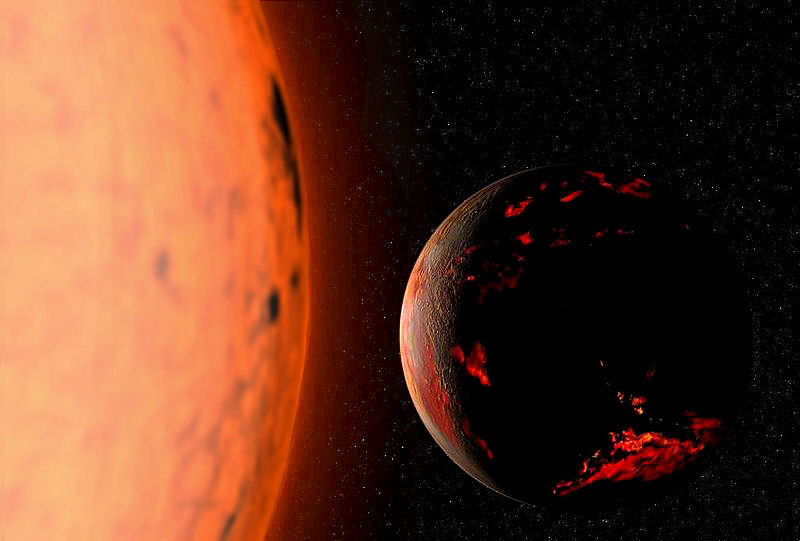The natural increase in solar luminosity-a very slow process unrelated to current climate warming-will cause the Earth's temperatures to rise over the next few hundred million years. This will result in the complete evaporation of the oceans. Devised by a team from the Laboratoire de Météorologie Dynamique[1] (CNRS / UPMC / ENS / École polytechnique), the first three-dimensional climate model able to simulate the phenomenon predicts that liquid water will disappear on Earth in approximately one billion years, extending previous estimates by several hundred million years. Published on December 12, 2013 in the journal Nature, the work not only improves our understanding of the evolution of our planet but also makes it possible to determine the necessary conditions for the presence of liquid water on other Earth-like planets.
Like most stars, the Sun's luminosity very slowly increases during the course of its existence[2]. It is therefore expected that, due to higher solar radiation, the Earth's climate will become warmer over geological timescales (of the order of hundreds of millions of years), independently of human-induced climate warming, which takes place over decades. This is because the amount of water vapor in the atmosphere rises as the oceans become warmer (the water evaporates faster). However, water vapor is a greenhouse gas that contributes to the warming of the Earth's surface. Scientists therefore predict that runaway climate warming will occur on Earth, causing the oceans to boil and liquid water to disappear from the surface. Another consequence is that the greenhouse effect will enter a runaway state and become unstable, making it impossible to maintain a mild mean temperature of 15 °C on Earth. This phenomenon may explain why Venus, which is a little nearer to the Sun than the Earth, turned into a furnace in the distant past. It also sheds light on the climate of exoplanets.

 en.wikipedia.org
en.wikipedia.org

